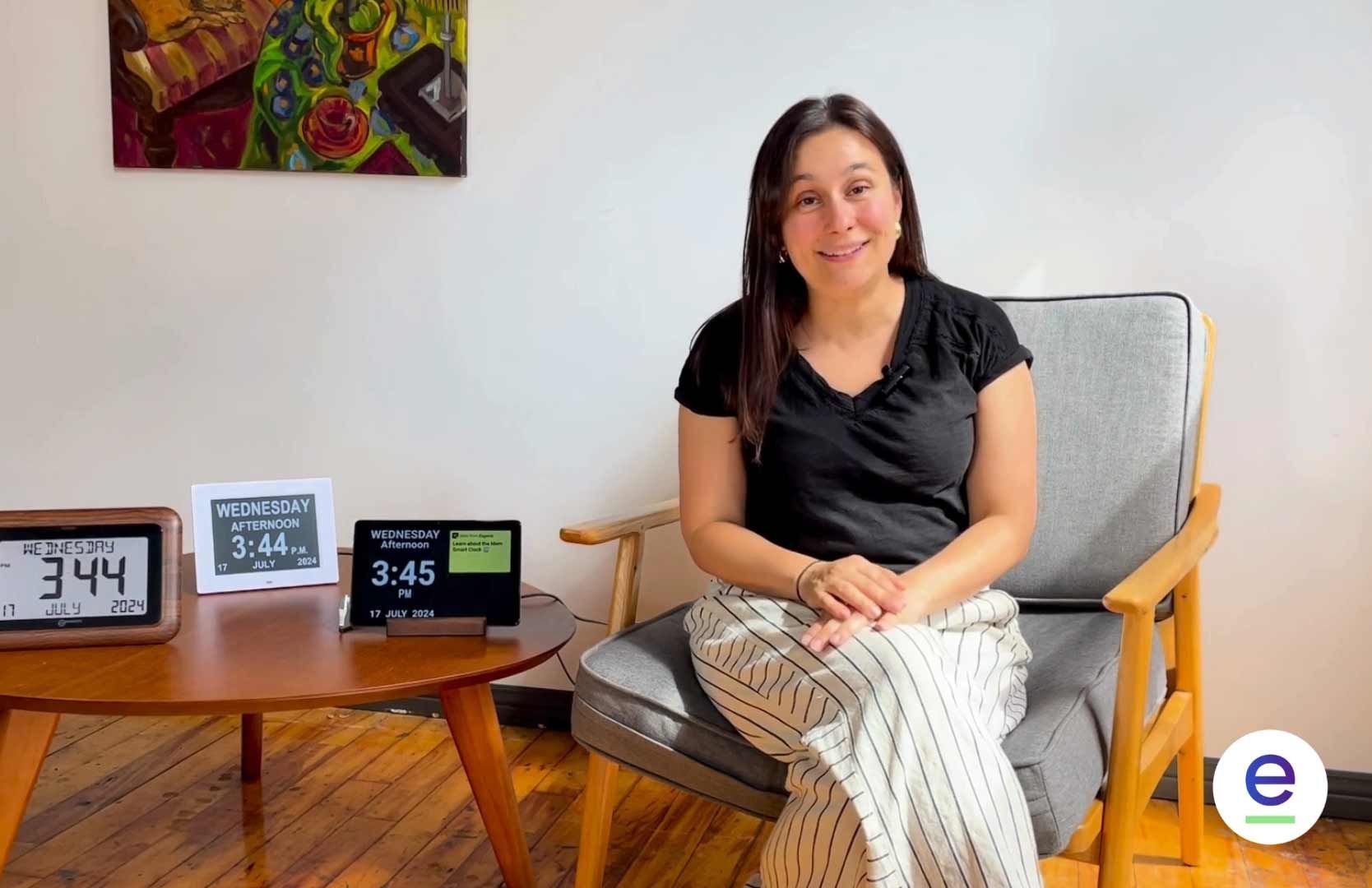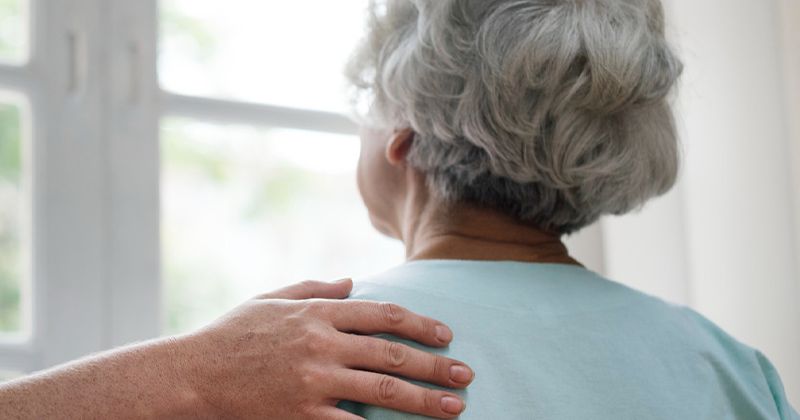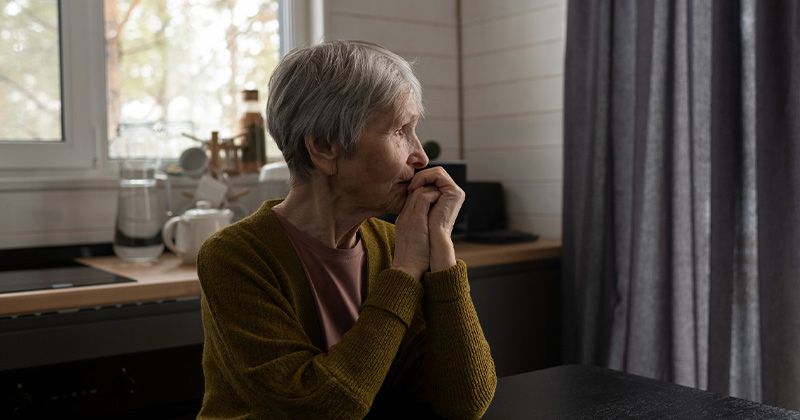Spatial and temporal disorientation is a common symptom of dementia, impacting how individuals living with dementia perceive time and place. It disrupts daily routines and increases caregivi...
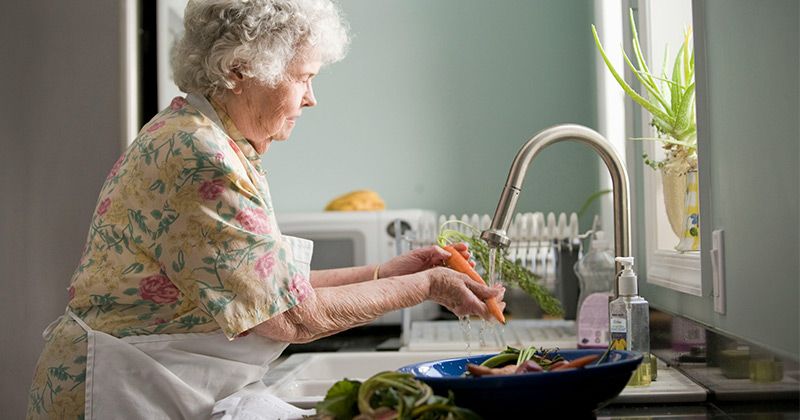
Infographic: Activities of Daily Living (ADLs) for Care Planning
by Erin Barnes
reviewed by Dr. Quoc Dinh Nguyen, Co-Founder and Medical Expert, MD, MA, MPH, PhD
5-minute read
What Are Activities of Daily Living (ADLs)?
Activities of Daily Living (ADLs) are essential self-care tasks that healthcare professionals use to assess an individual's ability to maintain independence. These tasks are crucial for daily functioning and overall well-being. ADLs are categorized into basic ADLs (often just "ADLs") and Instrumental Activities of Daily Living (iADLs).
Basic ADLs: Essential Self-Care Tasks
Basic ADLs are the fundamental activities necessary for maintaining health and hygiene. They include:
- Bathing and Showering: Ensuring personal cleanliness.
- Dressing: Selecting appropriate clothing and dressing independently.
- Eating: The ability to feed oneself.
- Mobility: Walking and transferring from one place to another, such as from a bed to a chair.
- Toileting and Continence: Managing bathroom needs and maintaining control over bladder and bowel functions.
Infographic - What are ADLs?
You can consult this infographic to better understand what are the Activities of Daily Living.
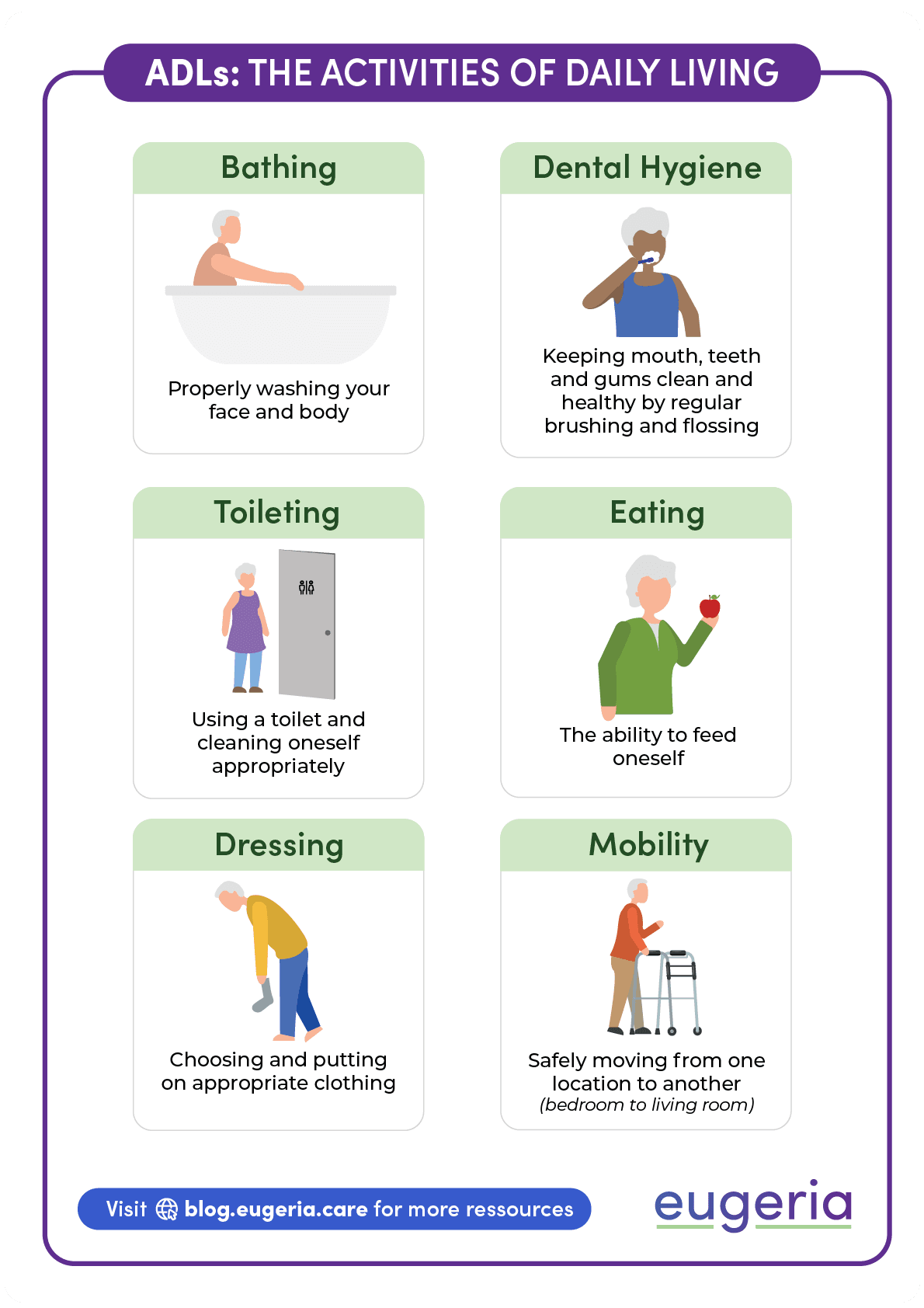
The Importance of ADLs in Assessing Independence
Assessing the ability to perform basic ADLs is a vital part of evaluating an individual's functional status and independence. It helps determine the level of assistance needed and whether additional care is required.
Addressing Difficulties with ADLs
If a loved one struggles with one or more ADLs, it may be time to seek additional support. Many services, both public and private, are available to help individuals maintain their independence and stay safe in their homes.
Monitoring ADLs for Better Care
Understanding and monitoring ADLs is crucial for ensuring that individuals receive the appropriate care and support. Whether through professional caregivers or support services, addressing difficulties with ADLs can significantly impact the quality of life and independence.


